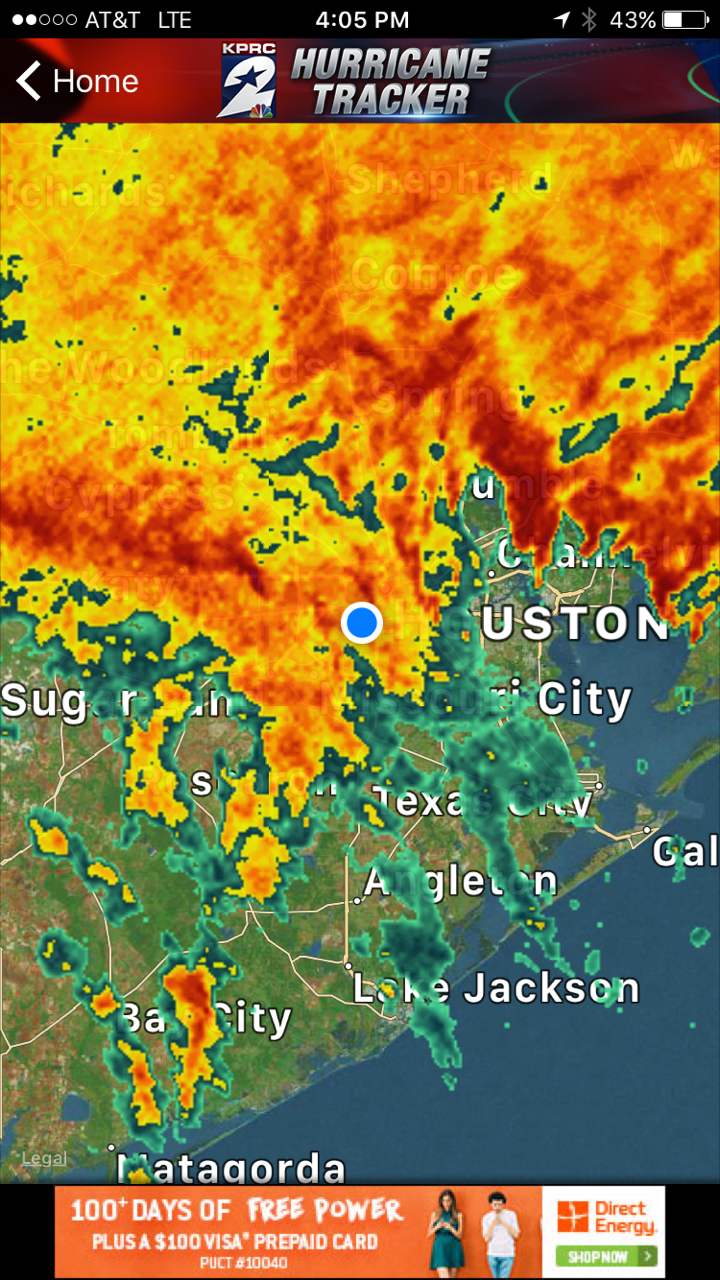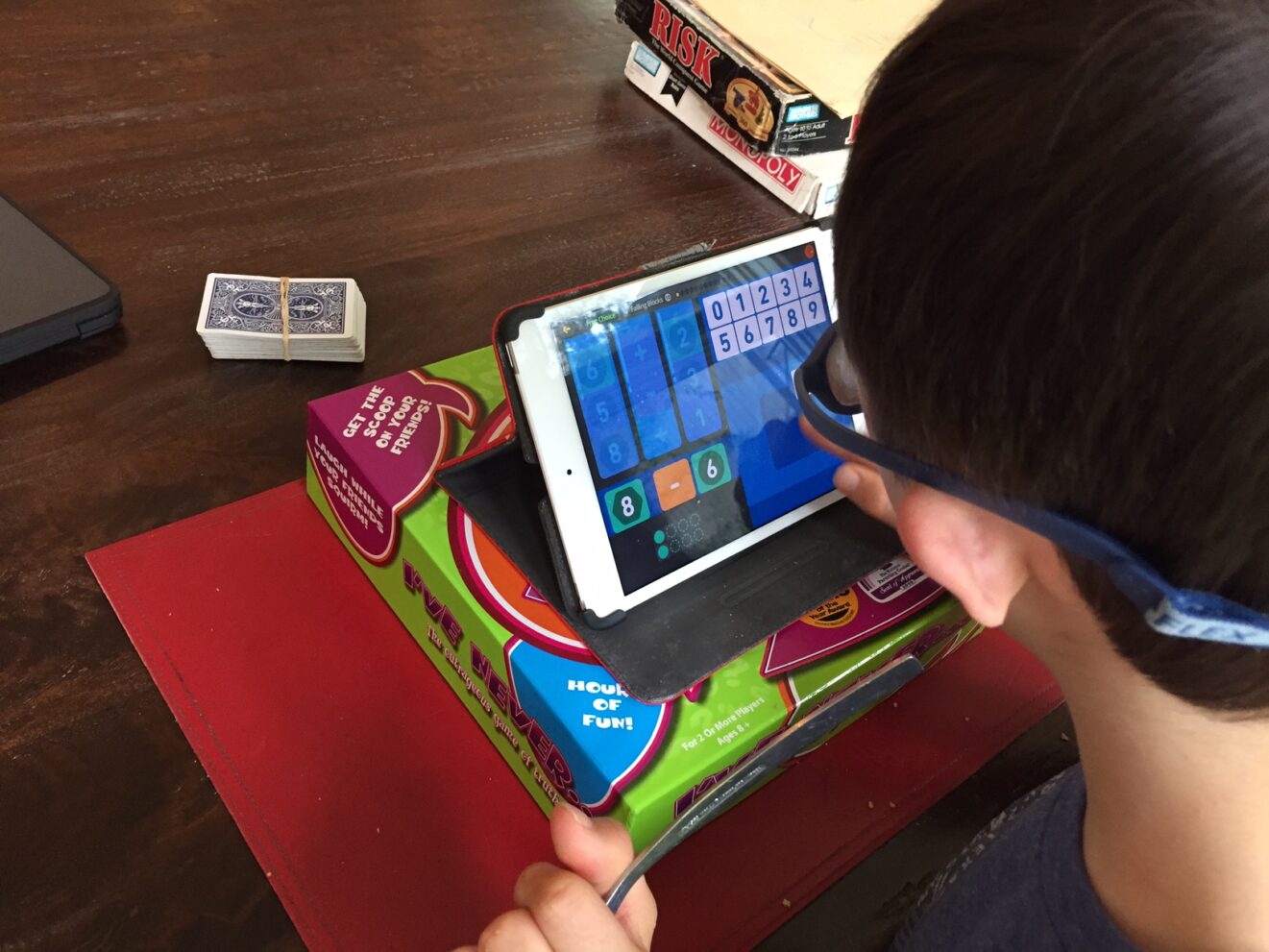- Winter 2022–2023: Much of North America is plagued by winter storms which bring heavy snow and freezing rain.
- January 2023: Violent rainstorms drench much of California, triggering floods and mudslides across an area of over 400 miles.
- January 24, 2023: A tornado rips through southeast Texas at 140 miles per hour, damaging dozens of buildings and leaving more than 20,000 homes without power.
- February 2023: Major earthquakes in Turkey and Syria cause thousands of casualties and leave a million people homeless.

Wherever you live, chances are that natural disasters interrupt your business-as-usual from time to time. You don’t have to suffer direct injury or property damage: schedule disruptions, power outages, and evacuations impact everyone in the area. Even breaking-news bulletins can trigger major stress when all you wanted was to relax with your favorite TV show and get your mind off disasters for a while. (Next time, try a streaming app instead.)
If you or someone in your household have an anxiety disorder, the negative reaction to bad news may not stop there: even a hint that the worst could be coming your way may leave you paralyzed with fear or hyperventilating in panic. That’s just one of many concerns associated with natural-disaster-plus-disability.
- If someone is in a wheelchair or has limited mobility, evacuating means extra time and effort to pack up and get going.
- If someone has autism, any abrupt change in routine may trigger a meltdown—and abrupt changes are inevitable during natural disasters.
- If someone is prone to wandering, this is the worst time it could happen—and the worst time to be keeping an eye on them and managing everything else that needs doing.
- If someone takes medication—especially multiple medications—that’s another thing to keep track of while surrounded by distractions.
- If someone has a sensory or communications disorder, keeping up with emergency contacts or alerts has extra complications.
Coping: Planning in Advance
When you live with a disability, extra planning and organization become part of daily life. Use this practice to your advantage when anticipating what might disrupt daily life.
- Plan what you will do in case of power outage, especially if someone is afraid of the dark, sensitive to temperature extremes, or dependent on powered assistive technology.
- Keep a “grab and go” kit handy in case you have to evacuate. Include first-aid supplies, extra clothing, and all necessary medications/assistive equipment, plus a spare device with your best emergency apps.
- Inspect your kit every few months, and replace anything that’s become outdated. Test all assistive devices to make sure they’re still working and fully charged.
- Have regular fire/evacuation drills where everyone practices the quickest way out of the house.
- Arrange with someone in a different town/state to have house space available for you if you have to leave your area (much better than coping with overcrowded public shelters, or counting on accessible motel space).
Coping: Waiting Out a Disaster at Home
- If you live alone, consider inviting a neighbor or nearby friend to stay with you for the duration. Things go better with company!
- Limit news exposure to limit stress: most of what’s on won’t be immediately relevant to you anyway. To get the important bulletins, sign up for an emergency-alerts list.
- Find something besides worrying to occupy your time and thoughts. Journal, read an inspirational or humorous book, work on a craft project, do a jigsaw puzzle. If you have reliable power, turn on your favorite relaxation or game app; or chat/play with a social media contact.

Coping: After the Storm
- Check in with friends and family as soon as you can. (Consider having a key contact, outside your immediate home range, who can update others for you if local communication channels are overloaded.)
- If your house or neighborhood escaped unscathed, volunteer to help a neighbor or a relief organization. Whatever your disability, disaster cleanup needs all kinds of talent.
- Helping someone else also reduces temptation to get impatient if you’re ready to resume business as usual while most of your area is still cleaning up. It helps you better appreciate your own blessings, too. Whatever happens or doesn’t happen, it always pays to be grateful rather than grumbly!
See also our BridgingApps Emergency Planning and Disaster Preparedness App List, which has suggestions for every concern from communications to first aid.

